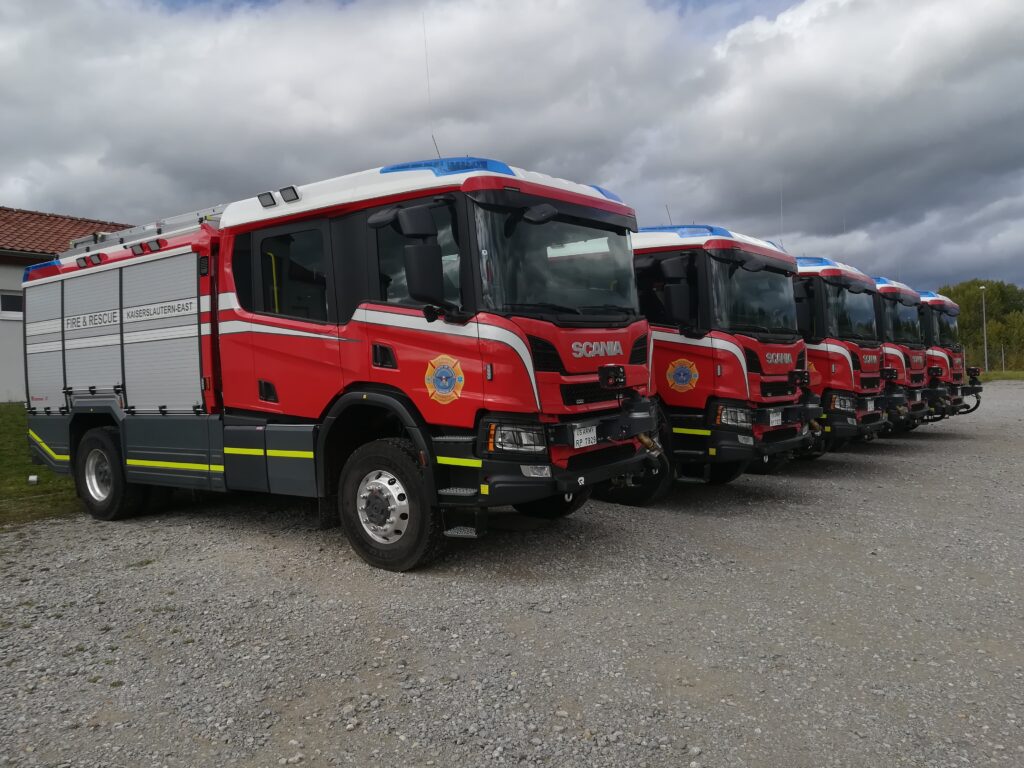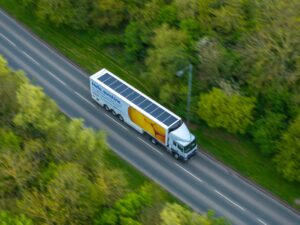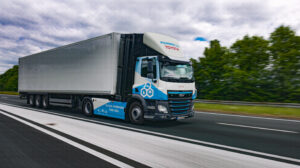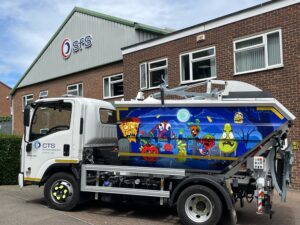Eight new Rosenbauer-body Scania fire trucks with Allison fully automatic transmissions have been taken into operation at the US Army in Germany’s fire departments.
The US Army in Germany recently added eight Scania structural pumper P410 B4x4HZ trucks with Rosenbauer-body and Allison 4000 Series fully automatic transmissions to its fire fleet. The vehicles, featuring the new CP 31 Crew Cab, are powered by a 302 kW (410 hp) diesel engine combined with an Allison 4000 Series fully automatic transmission. They will be stationed at different locations across Germany.
The US Army has procured this vehicle configuration for the last ten years, partly because of the advantages of a standardised fleet for staff training and vehicle maintenance, but also due to its positive experience with Allison transmissions over the past three decades.
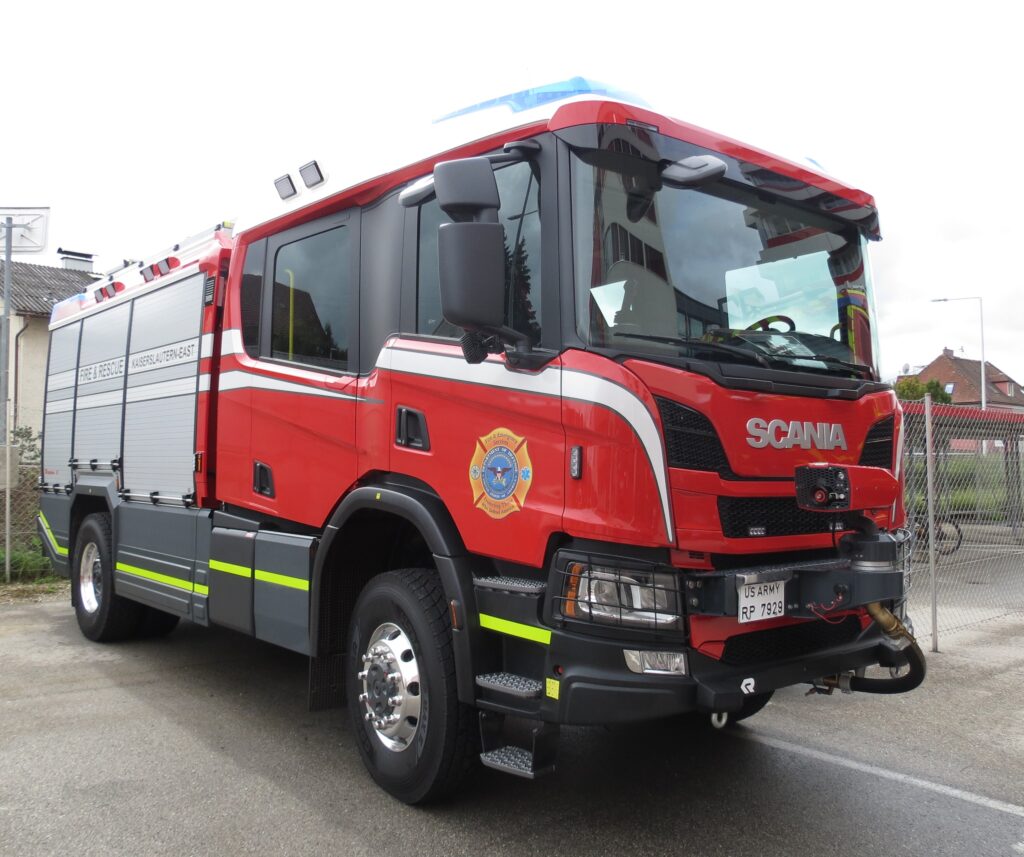
‘So far, the transmissions have fulfilled all requirements of the US Army with regards to performance, operation and maintenance,’ said Sigurd Mack, Fire Protection Specialist at the US Army Installation Management Command’s European Headquarters in Sembach near Kaiserslautern. ‘This also applies to the integrated hydraulic retarder and the Power Take-Off with the pump and roll function. It enables us to manoeuvre the vehicle safely and, at the same time, operate the water pump via the Power Take-Off – which is indispensable for efficient firefighting. For our operations and emergency responses, good acceleration, easy handling, and robustness are essential.’
According to the American NFPA (National Fire Protection Association), 1901 (Standard for Fire Apparatus) directive for firefighting vehicles, fully automatic transmissions are mandatory for heavy firefighting vehicles.
In its solicitation, the US Army does not only specify fully automatic transmissions, but it also identifies bespoke emergency vehicle transmission software. ‘A fully automatic transmission will only properly benefit the driver during operation if the shift pattern is tuned to the vehicle and the transmission works together effectively with the driver. It has to meet the specific mission for emergency response,’ said Mack.
Allison fully automatic transmissions differ from other technologies. Among other factors, they have specially developed shift calibration programmes for the fire and rescue application. When combined with continuous powershifting, this results in improved acceleration, higher average speed and faster response times.
The fully automatic Allison transmission with its patented torque converter and Continuous Power Technology multiplies engine torque during vehicle start-up and acceleration. Gear changes are made without interruption, resulting in the smooth transfer of power to the drive wheels and maximum efficiency between engine and transmission.
‘The transmissions shift smoothly at precisely the right moment, allowing the driver to concentrate fully on the road, which contributes significantly to accident prevention,’ said Mack.
“Besides, to have competent and highly skilled service technicians, as well as spare parts, service locally available greatly limits downtime and contributes to our readiness,” said Mack. “The transmission manufacturer infrastructure has also supported our goals so far in this regard.’
Allison fully automatic transmissions have demonstrated their outstanding reliability and durability under challenging conditions and are consequently used by numerous fire brigade fleets worldwide. There are currently about 70 Allison fully automated vehicles in the fire truck fleet of the US Army in Germany.
The oldest Allison transmissions in the fire brigade of the US Army in Germany have clocked up over 30 years of service. In 2007, the drivetrain components from 12 older Amertek 2500L trucks were removed and installed into 12 overhauled firefighting trucks, so-called ‘glider kits.’ The Detroit diesel engines and Allison HT 750 DRD transmissions of the Amertek 2500L trucks, which at that time were already around 25 years old, were fitted to a new HME 1871 SFO chassis with a body made by Hensel.
‘In the USA, general vehicle overhaul is a recognised procedure for vehicle maintenance and service life extension. The engines and transmissions, especially in fire trucks, are still in relatively good working condition and have proven to be very reliable, even after a long period. This contributed to the decision for a service life extension,’ said Mack.
Compared to a new purchase, the ‘glider kits’ helped to save approx. 80,000 – 100,000 USD per vehicle without compromising the functionality. The ‘glider kits’ are used as multi-purpose vehicles for firefighting and for providing technical assistance.

